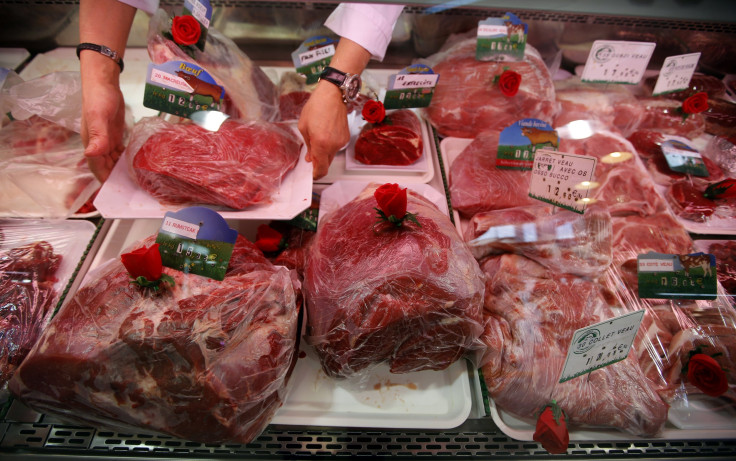What Is Neu5Gc? Molecule Common In Red Meat Increases Risk Of Tumor Formation In Humans

A non-human sialic acid sugar molecule called Neu5Gc, which is commonly found in red meat, increases the risk of tumor formation in humans, a study by researchers from the UC Davis School of Medicine and Xiamen University School of Medicine has found. The molecule is also found in pig organs, with concentrations of Neu5Gc increasing as the organs are cooked.
Neu5Gc poses a serious health risk among those who regularly consume organ meats from pigs, researchers said in the study that was published in Glycoconjugate Journal. The molecule is naturally found on cell surfaces in most mammals but not in humans. Consumption of meat, pig organs and some dairy products brings the molecule into the human body system.
Earlier, Neu5Gc was seen as present in human tissues, and is recognized as a foreign threat to the immune system. The consumption of red meat and pig organs leads to chronic inflammation that later increases the risk of tumor formation. This molecule is also linked to cancer, along with several other inflammatory diseases.
This is the first time that Neu5Gc has been found in pig organs, the spleen, lungs, heart, kidney and liver, than in skeletal muscle. The researchers measured sialic concentrations in pig organs at three, 38 and 180 days of age to conduct the study.
"We were rather surprised that organ meats from pigs have alarmingly high levels of Neu5Gc," co-author Frederic A. Troy II, professor at the Department of Biochemistry and Molecular Medicine, said. "Although we do not know quantitatively what levels trigger an immune response, if you're going to eat organ meat, you're going to have a potentially greater risk of certain inflammatory diseases."
"The basic, fundamental biochemical pathways for synthesis and metabolism of the sialic acids are essentially identical processes common in all evolutionary species from 'bacteria to brains,'" Troy said. "Therefore, the translational aspect of our findings to other mammalian species is essentially a given from a biochemical perspective."



























